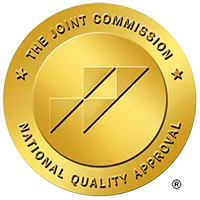Living with both a mental health disorder and a substance use disorder can feel overwhelming and isolating, but you are not alone. The term “dual diagnosis” refers to the presence of both conditions, and it is estimated that about 7.9 million people in the United States are affected by this co-occurring struggle. Navigating treatment can be a complex and daunting process, but with the right understanding and resources, recovery is possible.
In this guide, we will delve into the world of dual diagnosis comprehensive treatment, exploring the various types of therapies and interventions available, as well as the unique challenges and benefits of addressing both mental health and substance use concerns simultaneously. Together, we will unravel the complexities of dual diagnosis treatment and discover the key insights and strategies to help you or a loved one achieve lasting recovery and improved overall well-being.
Understanding Dual Diagnosis Treatment
Dual diagnosis, or co-occurring disorders, is a common phenomenon with significant implications for treatment outcomes. Research indicates that individuals struggling with substance use disorders are more likely to experience mental health issues such as depression, anxiety, bipolar disorder, or PTSD. Conversely, those with mental health disorders may turn to substances as a coping mechanism, leading to the development of a substance use disorder. This intricate relationship underscores the importance of integrated treatment approaches that address both conditions simultaneously.
Successfully Navigating Dual Diagnosis
This requires a nuanced understanding of how mental health and substance use intertwine. For example, treating one condition while neglecting the other can lead to relapses and incomplete recovery. By acknowledging the interconnected nature of these disorders, dual-diagnosis treatment programs can tailor interventions to meet the complex needs of each individual. Through comprehensive assessments, clinicians can identify the underlying issues driving the co-occurring disorders and develop a holistic treatment plan that targets root causes rather than just symptoms.
Moreover, dual-diagnosis treatment programs often employ multidisciplinary teams comprising psychologists, psychiatrists, addiction counselors, and medical professionals. This collaborative approach ensures that individuals receive integrated care that addresses their mental health, substance use, physical health, and social needs. By fostering a supportive and inclusive environment, these programs create a safe space for individuals to explore the underlying factors contributing to their dual diagnosis and work towards sustained recovery.
Benefits of Comprehensive Treatment
Comprehensive treatment within the context of dual diagnosis programs encompasses a wide array of evidence-based practices that cater to the diverse needs of individuals with co-occurring disorders. From cognitive-behavioral therapy and dialectical behavior therapy to medication-assisted treatment and experiential therapies, these programs offer a continuum of care designed to address the unique challenges posed by mental health and substance use disorders.
One significant advantage of comprehensive treatment is its focus on individualized care. Recognizing that no two individuals are the same, dual diagnosis programs customize treatment plans to align with each person’s specific diagnosis, history, preferences, and goals. This personalized approach not only enhances treatment efficacy but also fosters a sense of empowerment and engagement in the recovery process.
Addressing Underlying Traumas
Furthermore, comprehensive treatment emphasizes the importance of addressing underlying traumas, co-occurring medical conditions, and environmental factors that may contribute to the dual diagnosis. By taking a holistic view of an individual’s life circumstances, clinicians can create interventions that promote healing on multiple levels. This approach extends beyond symptom management to include strategies for improving overall well-being, enhancing coping skills, and building resiliency in the face of triggers and stressors.
Incorporating a diverse range of therapeutic modalities, such as mindfulness practices, art therapy, group counseling, and psychoeducation, comprehensive treatment ensures that individuals receive a well-rounded and holistic approach to healing. By nurturing the mind, body, and spirit, these programs set the stage for sustainable recovery and a renewed sense of purpose.
The Link Between Mental Health Disorders and Substance Use
The intricate relationship between mental health disorders and substance use is rooted in the concept of self-medication. Individuals experiencing symptoms of depression, anxiety, or trauma may turn to drugs or alcohol as a means of alleviating emotional distress or numbing psychological pain. While substances may provide temporary relief, they often exacerbate underlying mental health conditions over time, leading to a cycle of dependence and escalating symptoms.
Similarly, substance use can contribute to the development or worsening of mental health disorders. Prolonged drug or alcohol misuse can disrupt brain chemistry, alter mood regulation, and exacerbate psychiatric symptoms. Additionally, the impulsive behavior associated with substance use can increase the risk of mental health crises, such as suicidal ideation or psychosis.
The Role of an Integrated Approach
Central to the success of dual-diagnosis treatment programs is the integration of mental health and substance use interventions within a cohesive and collaborative framework. Rather than treating mental health and addiction as separate entities, an integrated approach acknowledges the interconnected nature of these disorders and works towards a unified and comprehensive treatment model.
In practice, an integrated approach involves close coordination between mental health professionals, addiction specialists, primary care providers, and support staff to deliver seamless and holistic care. Treatment planning is done collaboratively, with input from multidisciplinary team members who bring unique perspectives and expertise to the table. By pooling resources, knowledge, and skills, these professionals can develop treatment plans that address the complex needs of individuals with co-occurring disorders.
Moreover, an integrated approach promotes continuity of care by ensuring that individuals receive consistent and coordinated support throughout their recovery journey. Regular communication among treatment providers, frequent check-ins, and shared decision-making processes help individuals feel supported, empowered, and engaged in their treatment. This continuity fosters trust and rapport between clients and clinicians, enhancing the therapeutic alliance and facilitating positive treatment outcomes.
Saving Our Mental Health
In conclusion, dual-diagnosis treatment programs offer a beacon of hope for individuals struggling with the complex interplay of mental health and substance use disorders. Through comprehensive and integrated approaches to care, these programs facilitate healing, recovery, and transformation for those navigating the challenges of co-occurring conditions. If you or a loved one are facing a dual diagnosis, remember that help is available, and recovery is possible.
Take the first step towards a brighter future by reaching out to a dual-diagnosis treatment program today. Remember, you are not alone on this journey, and together, we can achieve lasting changes and improved well-being. Visit Colorado Mental Health Services to learn more about the intensive outpatient mental health program they offer.




